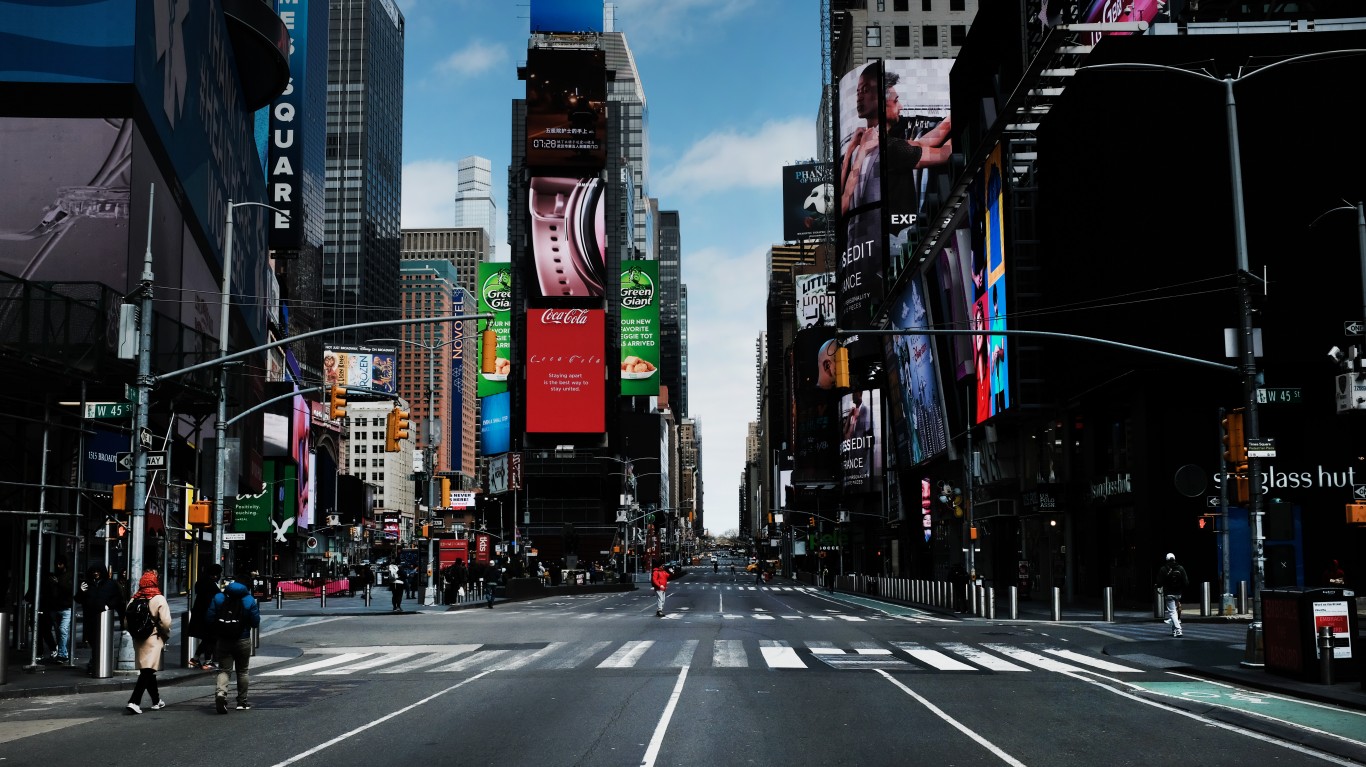Health and Healthcare
As COVID-19 Spreads Across America, New York Still Has Most Deaths By Far

Published:

California has become the first state where the number of confirmed COVID-19 cases has risen above 600,000. The state ranked second by that measure is Florida, at 557,000. It is just ahead of Texas at 513,000. New York State has a confirmed case count of 423,000. However, the New York death toll is well over twice that of any other state in the country.
The fatal case count in New York sits at 32,787. The figures for California, Texas and Florida are 10,808, 9,289 and 9,047 respectively. It is unlikely any of these three states will match New York’s total. It would take months for it even to be a possibility.
Put into context, approximately 20% of all fatal cases in America have occurred in New York, even though the state has just 5.9% of the U.S. population.
The spread of COVID-19 hit New York extremely hard in the early weeks of the pandemic. Deaths in the state topped 500 almost every day from April 3 to April 19. Only then did they start to taper off, but they were above 300 a day until April 30. No other state has even approached a period with this rate of deaths.
The primary reason for the high New York death count was the counties in and around New York City. Kings County has had 5,047 deaths. It contains the borough of Brooklyn. That figure tops the 4,383 deaths in all of Arizona.
Bronx County has had 3,359 fatal cases. Suffolk County, just east of New York City has had 1,998. Nassau County, also east of the city, has had 2,195, while New York County has had 2,088.
Why is this state’s count so much higher than in any other? There is no single explanation. New York City’s dense population and public transportation use may be involved. There was the ferocious toll COVID-19 took in crowded nursing homes until local authorities recognized this as an extreme problem. Hospital intensive care units became so overwhelmed that they could not handle all cases as well as possible. And, early in the pandemic, social distancing and masks had not yet become a widely recognized way to stop the spread. That changed quickly in April, but for many, it was too late.
While the disease continues to spread rapidly across much of the nation, the number of deaths per day has dropped very low in both New York State and New York City. However, the deeply troubling problems in New York may not be over as the colder months come, and poor social distancing and mask wearing allow COVID-19 to spread to places it already has crippled.
The average American spends $17,274 on debit cards a year, and it’s a HUGE mistake. First, debit cards don’t have the same fraud protections as credit cards. Once your money is gone, it’s gone. But more importantly you can actually get something back from this spending every time you swipe.
Issuers are handing out wild bonuses right now. With some you can earn up to 5% back on every purchase. That’s like getting a 5% discount on everything you buy!
Our top pick is kind of hard to imagine. Not only does it pay up to 5% back, it also includes a $200 cash back reward in the first six months, a 0% intro APR, and…. $0 annual fee. It’s quite literally free money for any one that uses a card regularly. Click here to learn more!
Flywheel Publishing has partnered with CardRatings to provide coverage of credit card products. Flywheel Publishing and CardRatings may receive a commission from card issuers.
Thank you for reading! Have some feedback for us?
Contact the 24/7 Wall St. editorial team.